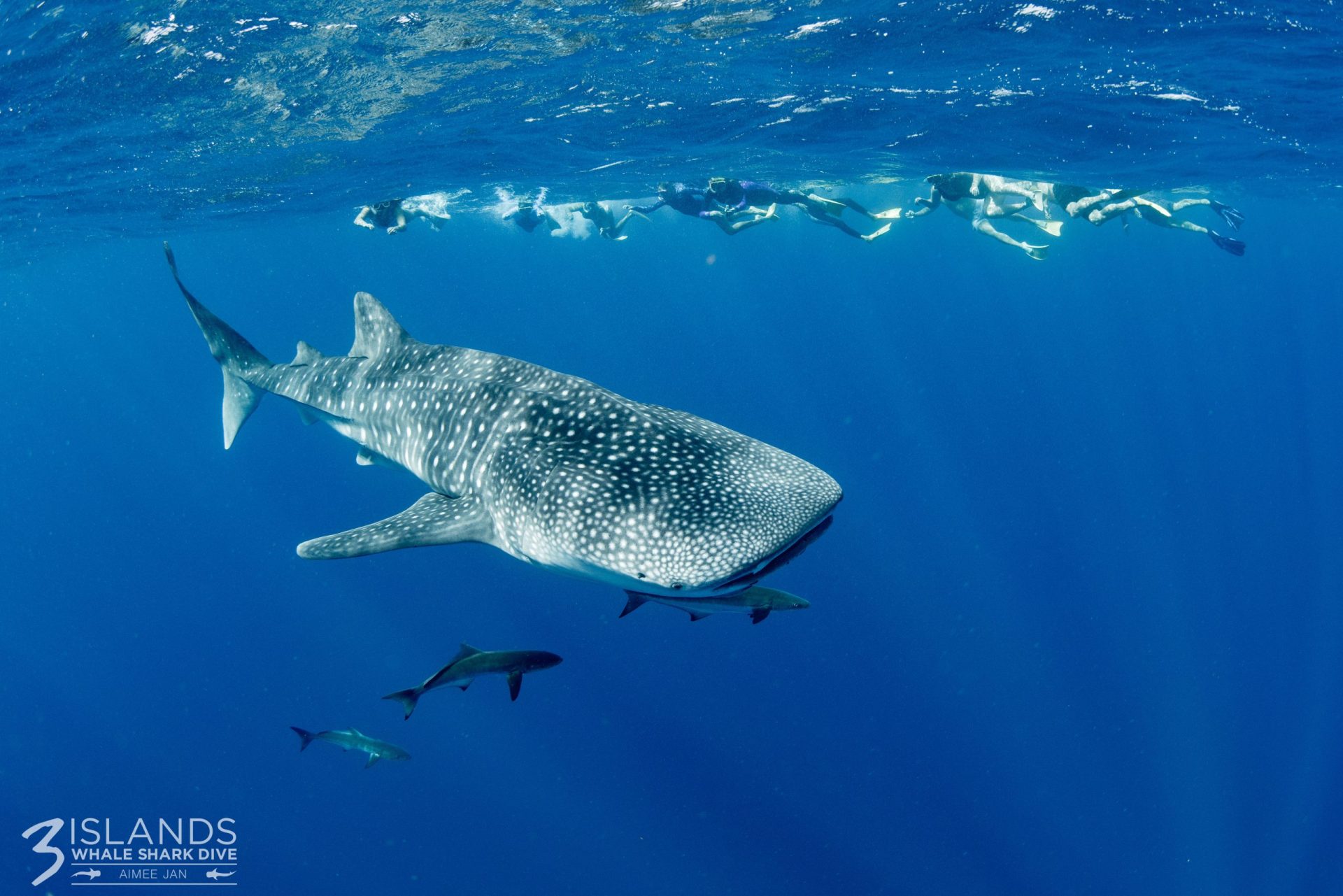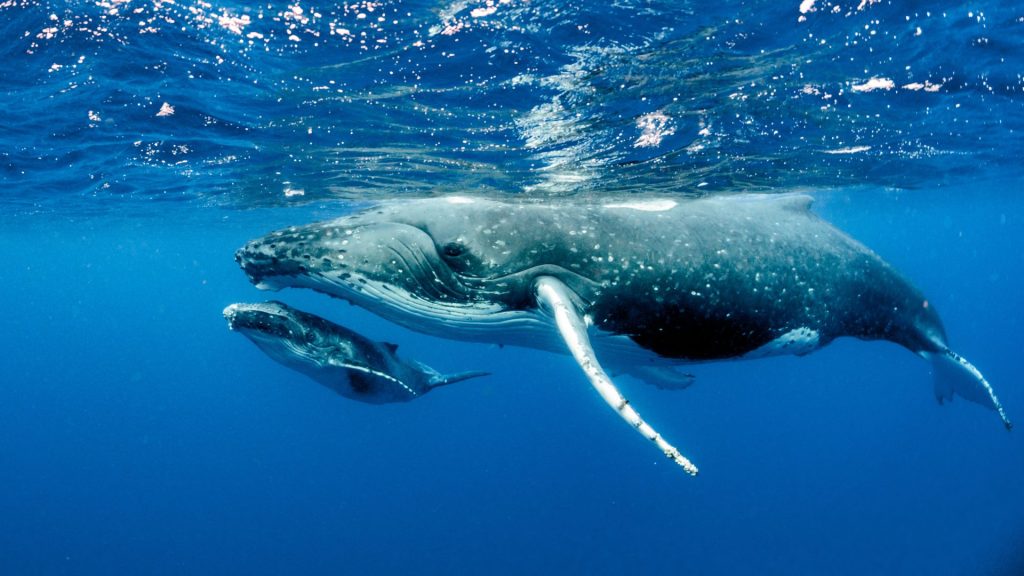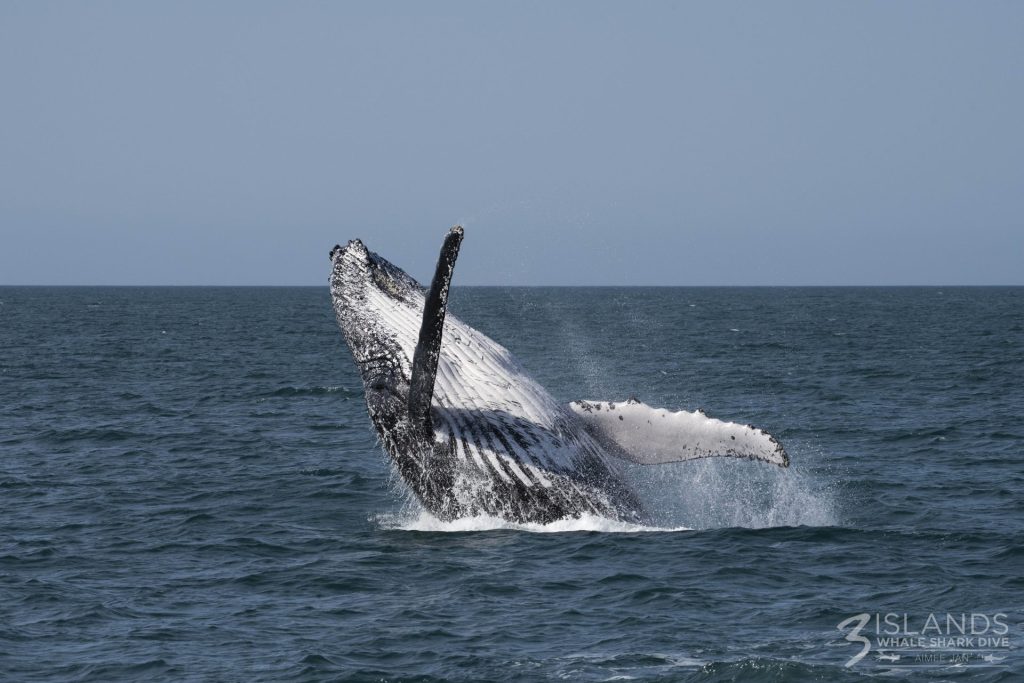Swimming with whales can be a little intimidating if you've never experienced it before. The sheer size of whales can make even the most confident people feel a little apprehensive, especially growing up with tales of fishermen being swallowed by whales.
Table of Contents
It begs the question: can a whale swallow a human? Long story short - no, a whale cannot swallow a human. But let's dig a little deeper.
People who have been "swallowed" by a whale
The first case of someone being "swallowed" by a whale was back in 1891 in the Falkland Islands, which is 500km east of Argentina, when two small whaleboats spotted a large sperm whale. James Bartley, who was 21 at the time, used a harpoon to attack the creature but he got a lot more than he bargained for. When he thought he had his catch, the whale emerged from the water and smashed his boat, engulfing Bartley in the process. The tale is that as the whale became attached to the ship, the remaining whalers cut open the whale's stomach around 15 hours later to find a shaken, deathly white (bleached from the whale), almost blind Bartley. Although there are no pictures of James Bartley to be found, the media ran with this outlandish story for over 100 years with no real substantial evidence, and several people have refuted this fact. There have been many stories about people being engulfed by whales. In the modern day, the latest is a lobster diver named Michael Packard who, in 2021 was trapped inside a humpback whale's mouth for around 40 seconds off the coast of Cape Cod. He stated that the whale began to freak out with him inside his mouth and as the whale was reaching the surface, it was shaking its head and he ended up flying out. Although there have been many cases of a whale accidentally sucking a human into their mouths, there are no cases of people dying. It is simply a one-in-a-million occurrence and if you're using safe practices around whales, you will never find yourself being that one.
So what actually happens?
Can a whale swallow a human? No, they can't - it's actually not physically possible. While whales can have huge mouths, a whale's throat is a lot smaller than you might expect, essentially the size of a human fist. So even if someone was swept into a whale's mouth, it wouldn't be long before they were swept out again. Also keep in mind that most whales don't have teeth, and toothed whales don't have sharp teeth, so they don't have the ability to break their food down into more manageable pieces. For the most part, whales eat small fish and don't go after any large prey. Sperm whales, which are significantly bigger, sometimes eat big fish or giant squid - but they need a waxy substance they produce called ambergris to help the giant squid down the oesophagus.
What do whales actually eat?
Whales are filter feeders and mostly eat planktonic organisms which includes:
- krill
- plankton
- jellyfish
- tiny plants
- fish and fish eggs
As they only eat food that is digestible to them, whale sharks will spit out anything that they aren't used to. So how does it work? Essentially, whale sharks will gather a large amount of sea water in their mouths, and use the baleen like a sieve, retaining the food in their mouth while pushing the water back out. What's left is the food they intend to swallow. There is very little chance of a human even being engulfed in the first place - getting past those baleen plates is highly unlikely! But rest assured - if you did for whatever reason, you'd be spat right back out.
What poses a threat to humans in oceans?
There are quite a few potential threats to humans floating in that big blue, but whales are really not one of them, especially if you keep a safe distance and don't disturb them in their natural habitat. Sea life to keep an eye out for include:
- Great White Sharks
- Box Jellyfish
- Tiger Shark
- Stonefish
- Piranhas
- Sea Urchins
- Stingray
Additionally, ocean pollution is increasingly becoming a threat to both humans and animals alike as the chemicals, plastic waste and harmful algal blooms create toxins that humans ingest when they are eating seafood. But a whale's stomach? Definitely not something to fear.
What about threats to whales?
Truth be told, as humans we pose far more of a threat to whales than they do to us. The main threat to whale sharks is the demand from humans. Commercial whaling still occurs in many places around the world and has significantly reduced whale populations. Even for blue whales, the largest animals on earth, we are a much larger threat - it's estimated that there are only around 2,000 blue whales left. Other threats include habitat loss, overfishing, pollution and, of course, global warming, which is affecting the ocean's ecosystem as a whole.
Swim with humpback whales in Exmouth
The Ningaloo Reef sees one of the largest migrating populations of humpback whales and is one of the few places you can legally swim with them in the world. Each year, humpback whales cruise past the Western Australian coast, making it the perfect opportunity to snorkel or spot them. From early August to mid October, you can snorkel with turtles, sting rays and colourful fish then you will be able to enter the water for an interaction with the humpback whales. For more information and to make reservations, contact Three Islands Whale Shark Dive at +61 1800 138 501. Don't miss the chance to create lasting memories with our humpback whales Exmouth tours.
More...
The Lifecycle of a Humpback Whale
The lifecycle of a humpback whale is one of the most amazing journeys on the planet. From their birth in warm tropical waters to their long migrations and incredible feeding techniques, humpbacks are constantly on the move, playing a vital role in ocean health along the way. At Three Islands Whale Shark Dive, we love…
Why Do Humpback Whales Sing?
Did you know that sounds travel up to four times faster in water than in air? Like most marine animals traversing the deep, dark ocean, humpback whales rely on vocalisation to communicate underwater. But why do humpback whales sing? And, how? For mating purposes? To communicate? To find food? To show off? A series of…





